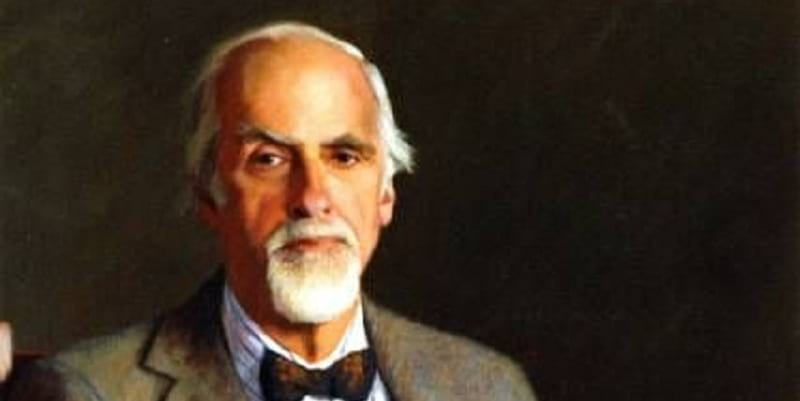David McClelland biography, books and theory

David McClelland (1917 – 1998) was an American psychologist, academician and scientist. David McClelland became famous with his work on McClelland Theory of Motivation. Next to that, based on his achievements (research, development and many scientific articles), he was ranked as the 15th most cited psychologists of the 20th century.
David McClelland biography
McClelland graduated in 1938 at the Wesleyan University for his Bachelor of Arts. In 1939 he graduated for his MA from the University of Missouri. Finally, he obtained a PhD in experimental psychology from Yale University in 1941.
After graduation he taught 25 years at Connecticut College and the Wesleyan University. In 1956 he joined the faculty at Harvard University. Besides tutoring, he served there as chairman of the Department of Psychology and Social Relations.
Research on human motivation theory
His higher motivation and theme of his work and research was personality and the application of that knowledge to helping people make their lives better. One of those developments was the expectancy-value theory of human motivation, also knwon as the McClelland Theory of Motivation.
Another famous theme of his work was the development of tests and operand methods, such as the Thematic Apperception Test, Behavioural Event Interview, and the Test of Thematic Analysis.
His third theme was the development of job-competency studies. Last but not least, was the development of his fourth theme. This theme is all about the application of this research to helping people and their social systems, whether that was through motivation and competency development, organization and community development, and changing behaviour to battle stress and addiction.
He believed that if you know how an outstanding performer thinks and acts, you could teach people how to think and act that way. His early projects addressed entrepreneurial development and training in achievement thinking and behaviour for small business owners in India, Tunisia, Iran, Poland, Malawi and the US.
Contribution to psychology
McClelland was awarded for his distinguished scientific contributions by the American Psychological Association. He wrote several books, based on his works, observations and researches.
Most of his books are related to the achievement and motivation. The Achievement Motive, and, The Achieving Society are two of the many other books and publications by him.
He died on March 27, 1998.
Famous quotes
- “Understanding human motivation ought to be a good thing. It should help us to find out what we really want so that we can avoid chasing rainbows that are not for us. It should open up opportunities for self-development if we apply motivational principles to pursuing our goals in life.”
- “Whatever the source of the leader’s ideas, he cannot inspire his people unless he expresses vivid goals which in some sense they want. Of course, the more closely he meets their needs, the less “persuasive” he has to be, but in no case does it make sense to speak as if his role is force submission. Rather it is to strengthen and uplift, to make people feel that they are the origins, not the pawns, of the socio-political system.”
- “The outstanding people realized that the job involved more than just writing a good strategic plan. It was also important that top management should understand the plan and be prepared to adopt it.”
- “Outstanding American men seem to see power as something you use in order to correct someone who’s wrong, to change them, to show them you see more in this situation than the boss does. Outstanding American women, on the other hand, see power as a resource, something you can use to get people together, to gain commitment.”
Books and publications of David McClelland et al.
- 2015. Psychoanalysis and Religious Mysticism. Martino Publishing.
- 1998. Identifying competencies with behavioural-event interviews. Psychological Science, 9(5), 331-339.
- 1994. Competency assessment methods: History and state of the art. Hay/McBer Research Press.
- 1990. Cognitive versus traditional motivational models: irreconcilable or complementary?.
- 1989. How do self-attributed and implicit motives differ?. Psychological review, 96(4), 690.
- 1987. Human motivation. CUP Archive.
- 1987. Characteristics of successful entrepreneurs. The journal of creative behaviour, 21(3), 219-233.
- 1985. How motives, skills, and values determine what people do. American psychologist, 40(7), 812.
- 1982. Leadership motive pattern and long-term success in management. Journal of Applied psychology, 67(6), 737.
- 1980. Stressed power motivation, sympathetic activation, immune function, and illness. Journal of Human Stress, 6(2), 11-19.
- 1977. Social learning theory.
- 1976. The achievement motive.
- 1976. Power is the Great Motivator. Harvard business review, 54(2), 100-110.
- 1975. Power: The inner experience. Irvington.
- 1973. Testing for competence rather than for” intelligence.”. American psychologist, 28(1), 1.
- 1971. The achievement motive in economic growth. na.
- 1971. Assessing human motivation. General Learning Press.
- 1970. The two faces of power. Journal of international Affairs, 24(1), 29-47.
- 1969. Motivating economic achievement.
- 1967. Achieving society. Simon and Schuster.
- 1965. N achievement and entrepreneurship: A longitudinal study. Journal of personality and Social Psychology, 1(4), 389.
- 1965. Toward a theory of motive acquisition. American psychologist, 20(5), 321.
- 1965. Achievement-Motivation Can Be Developed. Harvard business review, 43(6), 6.
- 1962. Business drive and national achievement. Harvard Business Review, 40(4), 99-112.
- 1958. Methods of measuring human motivation. Motives in fantasy, action, and society, 7-42.
- 1948. The projective expression of needs: I. The effect of different intensities of the hunger drive on perception. The Journal of psychology, 25(2), 205-222.
How to cite this article:
Van Vliet, V. (2016). David McClelland. Retrieved [insert date] from Toolshero: https://www.toolshero.com/toolsheroes/david-mcclelland/
Original publication date: 12/14/2016 | Last update: 03/19/2024
Add a link to this page on your website:
<a href=”https://www.toolshero.com/toolsheroes/david-mcclelland/”>Toolshero: David McClelland</a>











